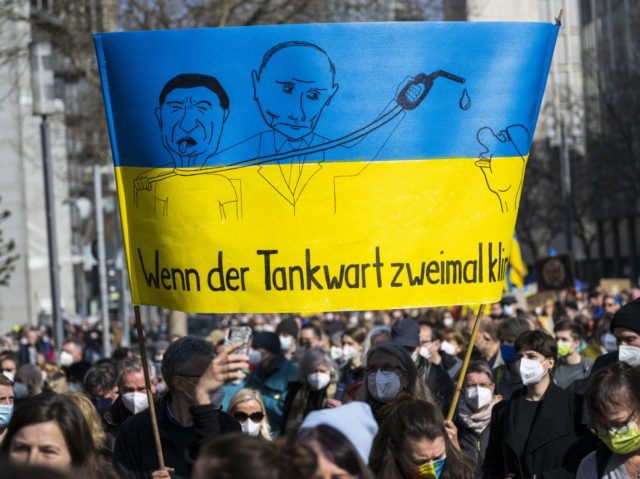Germany has seen the price of imported energy more than double compared to the same time last year, primarily as a result of the rising cost of Russian gas.
The considerable rise in prices comes as Germany still struggles to deal with its addiction to the supply of Russian gas, with 55 per cent of the country’s supply still coming from the country, despite recent open hostilities in Ukraine.
According to a press release from the German Federal statistics office Destatis, the price of foreign energy in Germany rose by 129.5 per cent, an increase largely attributed to the seismic rise in the price of foreign gas, which saw a price spike of 256.5 per cent since February last year.
“The development of natural gas prices was primarily responsible for the high increase in energy prices at the upstream economic levels,” the statistics office’s report reads.
“In February 2022, imported natural gas was three and a half times as expensive as a year earlier, and natural gas for distribution cost more than twice as much as a year earlier across all customer groups,” it continued.
What’s more, the agency notes that the price developments that occurred after Russia’s renewed invasion of Ukraine are not accounted for.
The increase has also reportedly had a knock-on effect for consumers, with household energy and fuel costs rising by 22.5 per cent in February, with the rising cost of energy also set to push up the rate of inflation in March.
While Germany’s Russian gas problem has been widely discussed for some time, the true scale of the issue has only recently become plainly apparent to its political class, with the country now struggling to find alternatives.
Despite this, however, the Federal Republic has often rejected suggested measures aimed at reducing its reliance on Russian supply, with the nation refusing to delay the closing of its Nuclear Power plants over claims that such delays would not effectively abate its addiction issues.
German authorities have largely turned to Liquified Natural Gas as a potential solution to the current crisis, though a number of difficulties regarding how the fuel could be landed in the country, as well as how it could be sourced at an effective price rate, have largely been downplayed by the government.
As German officials scramble to find alternatives, however, the country faces an ultimatum from Russia, which is now demanding the country pay for its gas in rubles or face being cut off from its supply entirely.
Germany has outright rejected the notion that it pay for its gas in the Russian domestic currency, but Russian authorities appear confident that Europe as a whole will come around to the change.
“Our western partners will adjust to this decision and understand that the ruble is no less a reliable currency than other reserve currencies,” said Russian Finance Minister Anton Siluanov, saying that he believed his government’s move to force payment in rubles was “absolutely correct”.

COMMENTS
Please let us know if you're having issues with commenting.